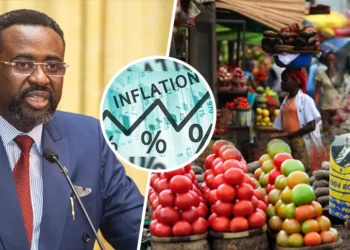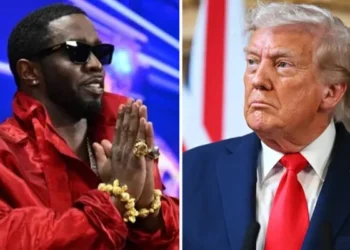Ukrainian President, Volodymyr Zelenskyy has urged support for EU accession of Ukraine, Moldova and Western Balkan countries, saying that it’s time to move forward.
In an address to a meeting of the European Political Community meeting in Copenhagen, Zelenskyy stressed, “Supporting Moldova, Ukraine, and the Western Balkans on their path to EU membership is critical.” “We need real progress,” Zelenskyy added.
He asserted that Ukraine has completed its screening process as part of its EU accession negotiations, and is ready to open talks on Cluster 1, which focuses on the fundamentals of the accession process.
Kyiv officially opened accession talks with the EU in June 2024, after being granted candidate status in 2022 after beginning of the ongoing Russia-Ukraine war.
Moldova is also a candidate country, having simultaneously acquired this status with Ukraine, while several Western Balkan states remain in different stages of the EU’s potential enlargement process.
Officials in Brussels and Kyiv say that Ukraine has carried out the necessary legal legwork to make more progress on negotiations, but Budapest is refusing to budge.
European Council Chief, Antonio Costa has been canvassing support for a plan that would mean countries cannot veto each new step of talks.
However, Orban appeared to pour cold water on the project as he gave a firm “no” when asked if Ukraine had any prospects of joining the bloc soon. “It would mean, first, that war would come into the European Union. Second, money from the European Union would go to Ukraine,” Orban said in Copenhagen Wednesday.
Also, the Ukrainian President argued that the recent drone incursions reported in Europe show Russia “still feels bold enough” to escalate the conflict.
“And it was never just about Ukraine. Russia has always aimed to break the West, and Europe, in particular. Today, their strategy is simple: to divide Europe, to ignite arguments, to prevent us from finding common ground.”
Volodymyr Zelenskyy
He said that they must do the “exact opposite” of what Russia expects of them, which is to “act together” and “act with strength.”
Additionally, Zelenskyy touched on the topic of a “drone wall” along the EU’s eastern frontier, saying that they are not just talking about one country but the entire continent itself. “If the Russians dare to launch drones against Poland or violate the airspace of Northern European countries, it means this can happen anywhere,” he said, calling for a “fast and effective” response to such situations.
The drone incidents in Denmark and high-profile aerial incursions from Moscow in Estonia and Poland have heightened fears that Russia’s assault on Ukraine could spill over Europe’s borders.
The Ukrainian leader urged participation in the Prioritized Ukraine Requirements List (PURL) initiative jointly launched by NATO and Washington in August, noting that the program supports not only Kyiv, but bolsters ties between Europe and the US.
The Ukrainian President called for further sanctions against Russia, and for the completion of work related to Ukraine’s security guarantees.
He urged leaders to fast-track adoption of the 19th package of sanctions against Russia, and asked them to “support President Trump’s call to stop buying Russian oil here, here in Europe.”
In a direct swipe at Hungary’s Viktor Orbán, he added, “and the guys from Hungary need to hear this,” as he stated that he is confident that “energy from the US and other partners can fill the gap in the European market.”
The Hungarian leader is proving an outlier in the EU is its efforts to end purchases of oil and gas from Russia.
Trump has demanded that NATO allies stop purchasing fossil fuels from Moscow before he will move ahead with sanctions to pressure the Kremlin to end the war in Ukraine.
Hungary, along with neighboring Slovakia, is one of the few European Union countries to still import oil from Russia via a pipeline.
Orban, one of Trump’s strongest backers in the EU, insisted that landlocked Hungary can’t stop buying from Russia.
READ ALSO: Ghana’s Economic Gains: IMANI Warns Against Complacency, Demands Sustained Reforms


















